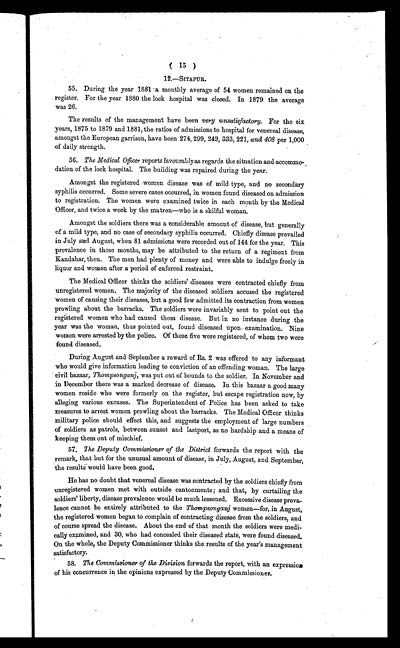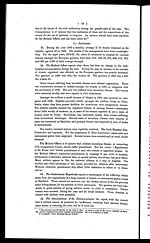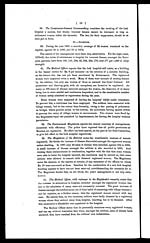Medicine - Institutions > Lock hospitals > Annual report on the working of the lock hospitals in the North-Western Provinces and Oudh > Eighth annual report of the working of the lock hospitals in the North-Western Provinces and Oudh, for the year 1881
(285) Page 15
Download files
Individual page:
Thumbnail gallery: Grid view | List view

( 15 )
12.—SITAPUR.
55. During the year 1881 a monthly average of 54 women remained on the
register. For the year 1880 the lock hospital was closed. In 1879 the average
was 26.
The results of the management have been very unsatisfactory. For the six
years, 1875 to 1879 and 1881, the ratios of admissions to hospital for venereal disease,
amongst the European garrison, have been 274, 299, 249, 333, 221, and 408 per 1,000
of daily strength.
56. The Medical Officer reports favourably as regards the situation and accommo-
dation of the lock hospital. The building was repaired during the year.
Amongst the registered women disease was of mild type, and no secondary
syphilis occurred. Some severe cases occurred, in women found diseased on admission
to registration. The women were examined twice in each month by the Medical
Officer, and twice a week by the matron—who is a skilful woman.
Amongst the soldiers there was a considerable amount of disease, but generally
of a mild type, and no case of secondary syphilis occurred. Chiefly disease prevailed
in July and August, when 81 admissions were recorded out of 144 for the year. This
prevalence in those months, may be attributed to the return of a regiment from
Kandahar, then. The men had plenty of money and were able to indulge freely in
liquor and women after a period of enforced restraint.
The Medical Officer thinks the soldiers' diseases were contracted chiefly from
unregistered women. The majority of the diseased soldiers accused the registered
women of causing their diseases, but a good few admitted its contraction from women
prowling about the barracks. The soldiers were invariably sent to point out the
registered women who had caused them disease. But in no instance during the
year was the woman, thus pointed out, found diseased upon examination. Nine
women were arrested by the police. Of these five were registered, of whom two were
found diseased.
During August and September a reward of Rs. 2 was offered to any informant
who would give information leading to conviction of an offending woman. The large
civil bazaar, Thompsonganj, was put out of bounds to the soldier. In November and
in December there was a marked decrease of disease. In this bazaar a good many
women reside who were formerly on the register, but escape registration now, by
alleging various excuses. The Superintendent of Police has been asked to take
measures to arrest women prowling about the barracks. The Medical Officer thinks
military police should effect this, and suggests the employment of large numbers
of soldiers as patrols, between sunset and lastpost, as no hardship and a means of
keeping them out of mischief.
57. The Deputy Commissioner of the District forwards the report with the
remark, that but for the unusual amount of disease, in July, August, and September,
the results would have been good.
He has no doubt that venereal disease was contracted by the soldiers chiefly from
unregistered women met with outside cantonments; and that, by curtailing the
soldiers' liberty, disease prevalence would be much lessened. Excessive disease preva-
lence cannot be entirely attributed to the Thompsonganj women—for, in August,
the registered women began to complain of contracting disease from the soldiers, and
of course spread the disease. About the end of that month the soldiers were medi-
cally examined, and 30, who had concealed their diseased state, were found diseased.
On the whole, the Deputy Commissioner thinks the results of the year's management
satisfactory.
58. The Commissioner of the Division forwards the report, with an expression
of his concurrence in the opinions expressed by the Deputy Commissioner.
Set display mode to: Large image | Zoom image | Transcription
Images and transcriptions on this page, including medium image downloads, may be used under the Creative Commons Attribution 4.0 International Licence unless otherwise stated. ![]()
| Permanent URL | https://digital.nls.uk/75111726 |
|---|




